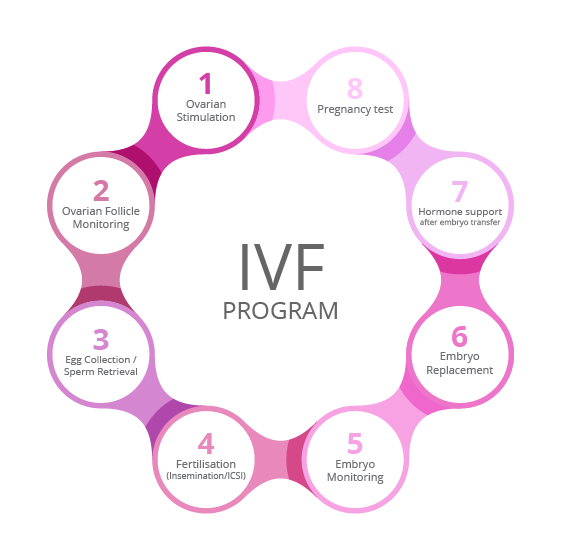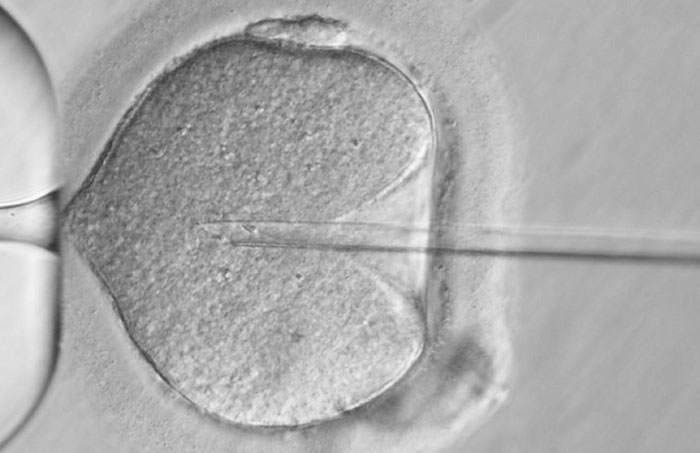What Is IVF?

Overcoming Infertility
March 9, 2018In-Vitro Fertilisation or IVF is one of the most commonly performed procedures among Assisted Reproductive Techniques (ART), which can enable couples to have a baby after many failed attempts using natural conception methods.
IVF is the treatment of choice in couples who present with any one of the factors listed below.
In Women
- Damaged or blocked fallopian tubes, including a history of past tubal ligation
- Ovaries are unresponsive to fertility medications
- Immunological factors
- Endometriosis-related infertility
- Implantation problems – the fertilised egg does not attach to the lining of the uterus
- “Unexplained” infertility
In Men
- Low sperm count
- Obstruction of the duct from the testicles to the urethra so that sperm is not released in the semen
- Abnormal sperm / Poor sperm quality
- Testicular damage resulting in an inability of the testes to produce sperm
- “Unexplained” infertility
IVF Programme

Above is an outline of the typical IVF cycle.
Our IVF programme offers different medication protocols depending upon the cause/s of infertility that have been discovered following intensive screening. Despite difference in medication protocols, the overall procedure is the same.
Our female patients are given medications that will stimulate the ovaries, allowing for the growth and maturation of multiple eggs. These matured eggs are surgically removed in our Operating Theatre and are fertilised in a dish together with her spouse’s sperms. After an incubation period of 3-5 days, the healthy embryos are transferred into the woman’s uterus in the hopes of implantation in the uterine lining and pregnancy will occur.

